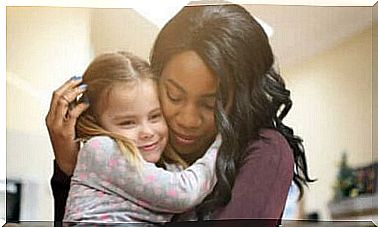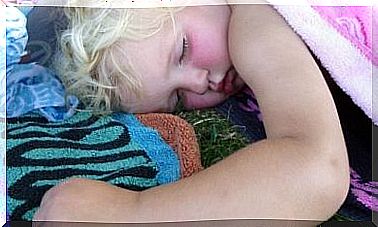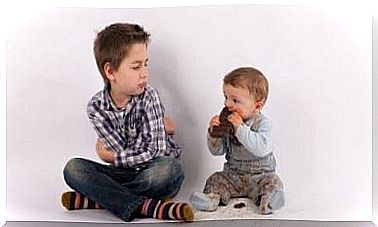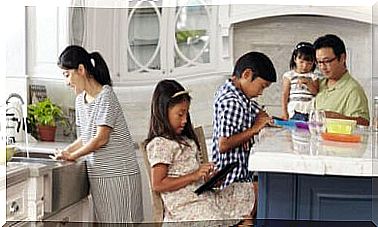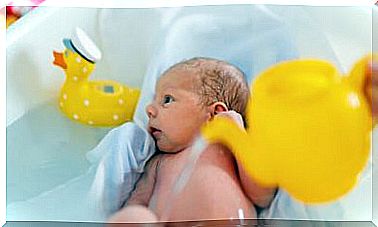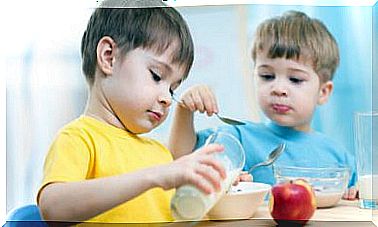Maria Montessori’s Advice For Educating Independent Children
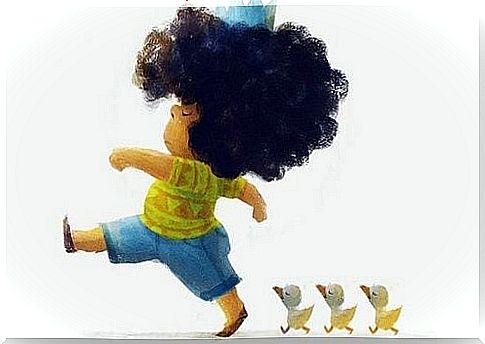
When a child feels confident in himself, he will gradually stop seeking approval at every step. This is why educating independent children is so important. This idea, passed on by Maria Montessori, gives us a perfect example of how we can make our children not only more independent, but also happier.
On the other hand, today there are many people who do not yet look favorably on the pedagogical legacy that the famous Italian philosopher and teacher left us. Its principles principles, aimed at strengthening the child’s intellect and physique, are considered by many people to be a risk. Letting your child be the creator and discoverer of your own learning is, for many, something out of the ordinary.
However, the question must be considered from the correct point of view. It is not a question of “letting them do it, allowing the children to be completely free”, but, precisely, to educate independent children, something quite different . We adults are their guides, those who make them discover all that is in their possibilities. Each child has his own times and needs. It is only a question of acting with respect and intuition, so that its development is harmonious and, above all, happy.
On the other hand, in addition to maximizing this development in our children, what we all want is that children learn to be responsible and independent. We are certainly not referring to the fact that a six-year-old behaves like a ten-year-old. What we want is that, respecting all ages, it assumes autonomy and the obligations deriving from it.
Succeeding is a real challenge. At the same time, as we grapple with the task of educating independent children, we too will grow up as mothers and fathers.
The basis for educating independent children

Let’s start by offering you a piece of advice that is as simple as it is enlightening: if you want an independent child, offer them autonomy. We know well that, for many mothers and fathers, saying “autonomy” can be a problem.
Does that mean we have to give him all the freedoms he wants? Absolutely not. It is about trusting our children and allowing them to grow according to their age and characteristics.
There are mothers and fathers who, every day, strive to give their children the best. They take care of every detail, they tie their shoes, put the toys in place, prepare the backpacks for school, comb them, dress them … Everything has a limit, a balance and a purpose.
There comes a time when their children have to step forward. Sm ect to be infants to become children. There is no doubt that, in this way, they will begin to have their needs. To achieve this goal, there is nothing better than clarifying it through a principle: growing and being independent involves being responsible, and to be responsible one must demonstrate what one is capable of doing. Only in this way can children be educated that are independent and not simply irresponsible.
These are some strategies based on Maria Montessori’s methodology.
Children aged two to three
Maria Montessori has identified the so-called sensitive periods. These are moments in which children acquire the maximum learning potential. These are the times when they are most receptive, and we, as parents, have the best opportunities to guide them.
- The two and three years are a special time. They begin to communicate, to ask for things, to discover their world, to want to touch everything.
- It is an ideal time to entrust them with their first responsibilities. However, these responsibilities will be controlled by us.
- They can start dressing themselves, learning how to tidy up toys, help set the table, take responsibility for their belongings, making sure they don’t break.
- For our part, it is essential that we make them participate in the housework. The child is part of a family, and he must understand that we all have responsibilities.

Children aged four to six
At this age, a key tip is to make sure that the home decor is adapted for them. In this sense, many things can and should be done.
- We can place a stool so that the child begins to comb his hair himself, to brush his teeth, to put himself in order.
- Maria Montessori recommended that every child be able to cope with all these situations that are part of daily life. So, it is a good thing that, at this age, he carries out his first activities in the kitchen (under our supervision), is able to serve himself breakfast, prepare a salad, his bowl of cereal …
- He must feel involved, useful and above all safe, realizing that he can do many things that are good for him.
For a child to feel autonomous and to further promote his independence, it is essential to give him positive reinforcements. Positive emotional caresses are the food that will make him grow up safe and happy.
Children aged seven and eight

Between the ages of two and eight, the child experiences the most important evolutionary moment of his life. It is in this period that we must consolidate his self-esteem, the roots of his identity and, above all, that vision of self-efficacy that is so important and thanks to which he can continue to grow feeling useful, capable, independent …
- Between the ages of seven and eight, a child can do many things. Nonetheless, he will sometimes believe he can do more than we can allow. It is necessary to give him freedom, but also to give him good advice.
- At this age he must be fully responsible for his own affairs, both home and school. He must also show us that we can trust him. Based on this trust, the child will gain further independence.
Furthermore, we must take into account something essential and no less important. Not all children mature equally. Consequently, we will not give certain responsibilities to children who are not yet able to take them on.
We don’t have to force things. For example, if an eight-year-old is very distracted, lively and not very focused, we cannot entrust him with the responsibility of preparing a snack every day and putting it in his backpack. He will probably end up forgetting about it.
We need to check it out. And we will do it in a discreet and affectionate way. Little by little, day after day, he will continue to mature and be able to do great things on his own.
